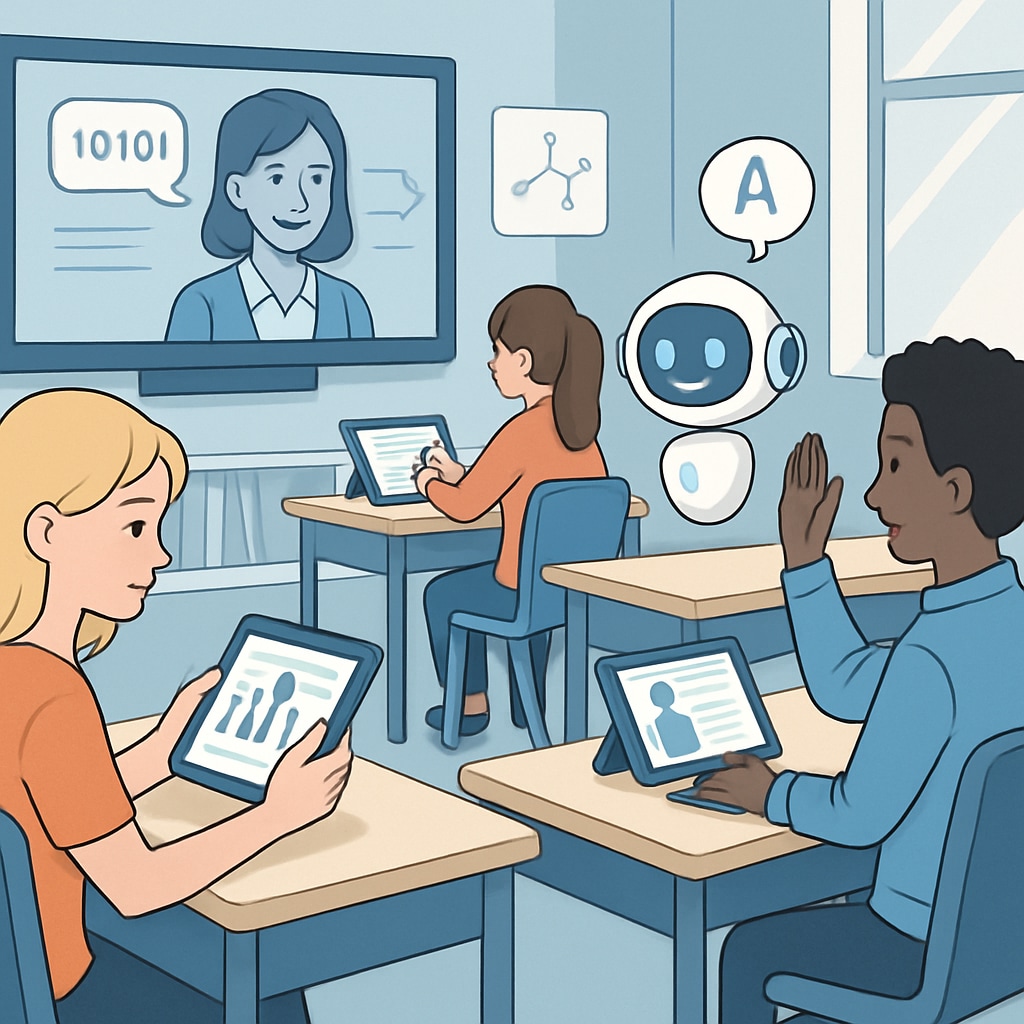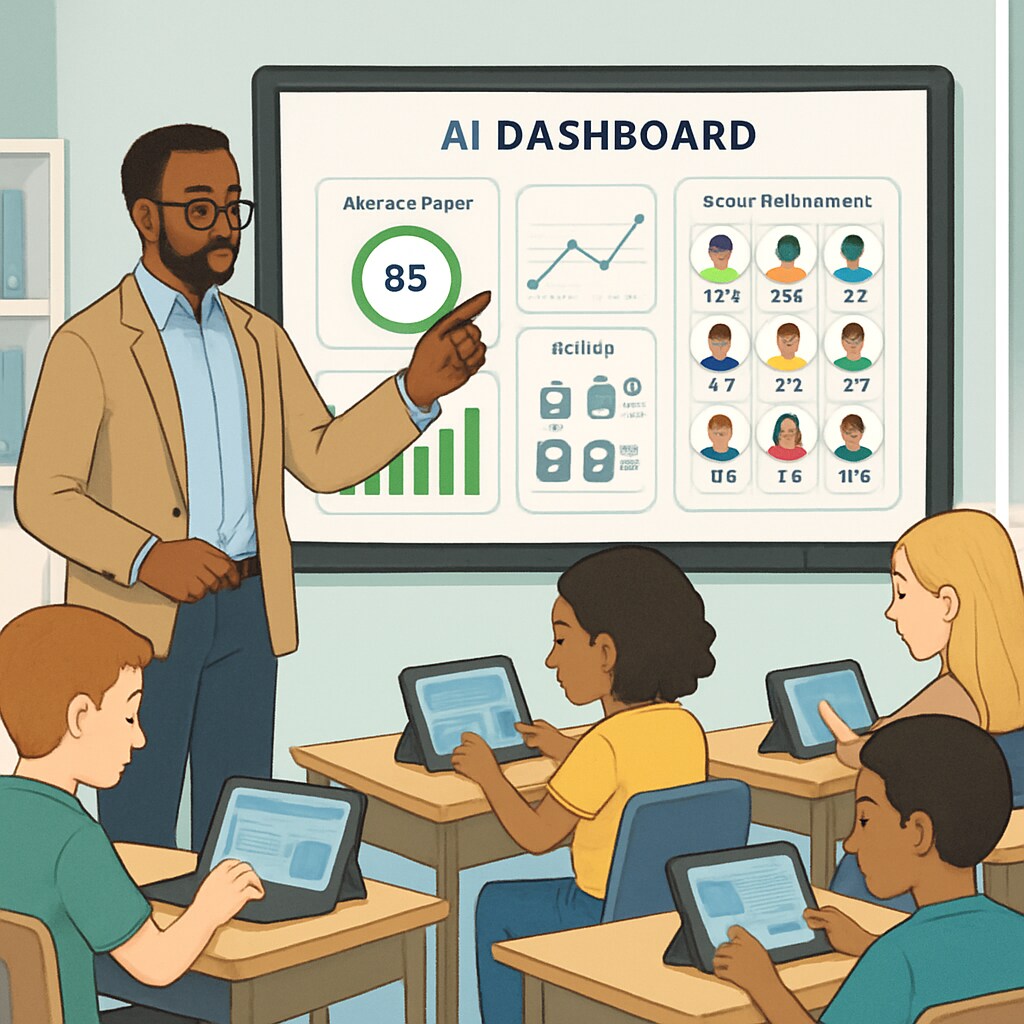Artificial intelligence (AI) is rapidly transforming education, promising a significant future impact on learning systems, teacher roles, and student assessments. As we look ahead to the next 5-10 years, AI’s integration into the K12 classroom offers both opportunities and challenges. By enabling personalized learning experiences, refining educational assessments, and redefining the role of educators, AI is poised to revolutionize the traditional school system. However, to fully embrace this transformation, educators and policymakers must navigate the ethical and practical considerations of AI adoption.

The Role of AI in Personalized Learning
One of the most promising applications of AI in education is personalized learning. AI excels at analyzing vast amounts of data, enabling it to tailor educational content to each student’s individual needs, strengths, and weaknesses. For example, AI-driven platforms can adapt math exercises for a student who struggles with fractions while pushing advanced learners towards more challenging problems.
Such systems not only enhance engagement but also ensure that no student is left behind. Programs like Khan Academy and AI-powered tutoring apps are already paving the way, proving that adaptive learning technologies can cater to diverse learning styles and speeds.
Transforming the Role of Teachers
Rather than replacing teachers, AI is set to empower them. Teachers will transition from being the sole knowledge providers to playing more dynamic roles, such as mentors and facilitators. AI can automate repetitive tasks, such as grading and attendance tracking, freeing up time for teachers to focus on critical thinking exercises, creativity, and emotional intelligence development with their students.
Furthermore, AI tools can provide teachers with real-time insights into student performance, enabling more targeted interventions. For instance, an AI dashboard could flag students at risk of falling behind in specific subjects, allowing teachers to offer timely support.

Revolutionizing Assessment Methods
Traditional assessments, such as standardized tests, often fail to capture a student’s full range of abilities. AI has the potential to change this by introducing dynamic and ongoing assessments. For example, instead of relying solely on end-of-term exams, AI can continuously evaluate a student’s work and provide immediate feedback.
This shift not only reduces test anxiety but also offers a more holistic view of a student’s progress. AI-driven tools could even assess creative and collaborative skills, which are often overlooked but are increasingly valued in the modern workforce.
Challenges and Ethical Considerations
While the benefits of AI in education are immense, they come with challenges. Privacy concerns are paramount, as AI systems require access to sensitive student data to function effectively. Ensuring data security and maintaining transparency about how AI algorithms make decisions are critical for building trust among parents, students, and educators.
Additionally, the digital divide remains a significant barrier. Schools in underprivileged areas may lack the resources to implement AI technologies, potentially widening existing educational inequalities. Policymakers must prioritize equitable access to ensure that AI benefits all students, not just those in well-funded districts.
Preparing for the AI-Driven Future
To successfully integrate AI into K12 education, schools and educators must adopt a proactive approach. Training programs should be developed to help teachers become proficient in using AI tools. Schools should also foster a culture of innovation, encouraging experimentation with new technologies while carefully evaluating their effectiveness.
Moreover, collaboration between governments, tech companies, and educational institutions will be crucial. Initiatives such as AI research collaborations and government-funded pilot programs can help test and scale successful solutions.
In conclusion, artificial intelligence has the potential to profoundly impact the future of education. By embracing the opportunities AI offers while addressing its challenges, educators can create a more inclusive, personalized, and effective learning environment for the next generation of students.
Readability guidance: This article balances technical insights with accessible language. It features short paragraphs, clear transitions, and actionable recommendations to ensure readability for a general audience.


